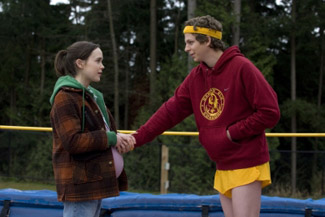|
|
What Went Right: JunoBy Shalimar SahotaFebruary 5, 2014
Juno had managed to earn $231 million worldwide. So why did everyone flock to see a bulging Ellen Page? Teenage pregnancy is a subject that would often be handled in complete seriousness, focusing on the pain, sorrow and possible repercussions of what that teenager is dealing with. While there are elements of this in Juno, the film is essentially classified as a comedy. Doing so makes it more appealing to the masses. Otherwise your film simply ends up being a low budget serious depress-fest that will win critical praise, but isn’t exactly mainstream friendly, with few people ever hearing about it (e.g. A Way of Life). However, Juno is actually very funny. Even the marketing made sure to focus on the funny, with the trailer describing the film as, “a comedy about life,” which sounds utterly vague, but the key word that Fox Searchlight wanted to get across here was “comedy”. Adding humour to a serious subject is a risk that doesn’t always work, yet with Juno its strength lies in Cody’s writing, particularly of the title character herself, and Page’s performance. Cody and Reitman also highlight the uniqueness of the character in the film itself. Juno’s father mentions how she has “a wonderful sense of humour, just one of her many genetic gifts,” while Bleeker’s mother describes Juno as “different.” Reviews were overly positive, with many critics praising Cody’s script, using words like smart, witty, real and quirky. Some noted the dialogue of the teenage characters, in that while it sounded like teenagers, apparently no teenager would speak this way. Cody justified this during an interview with Entertainment Weekly, saying, “God knows people might say the dialogue in Juno is too stylized, but I've met so many hyperarticulate teenage girls who are not just shallow and image-obsessed.”
[ View other columns by Shalimar Sahota ]
[ View other What Went Right columns ]
[ Email this column ]
|

|
|
|

|
Friday, November 1, 2024
© 2024 Box Office Prophets, a division of One Of Us, Inc.


